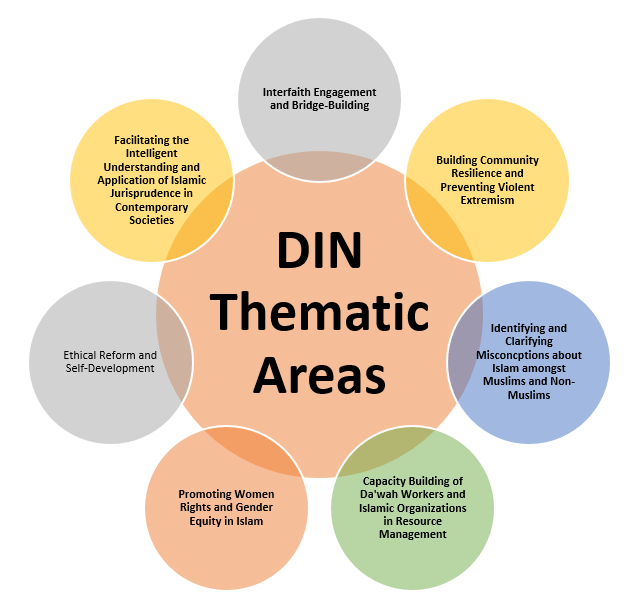Research
This is the engine-room of the Da’wah Institute of Nigeria. As an organization poised to respond to misconceptions that Muslims, and others, may have about Islam, the DIN carries out periodic surveys – online and offline – in different countries across the globe. The DIN thus conducts research, develops resource materials and methods for Da’wah, and organizes training programmes in:- Facilitating the intelligent understanding and application of Islamic Jurisprudence in Contemporary societies.
- Identifying and clearing misconceptions about Islam held by Muslims and Non-Muslims.
- Building Community Resilience and Preventing Violent Extremism (PVE) through Alternative Narratives.
- Capacity building for better interfaith engagement and bridge building for peaceful co-existence.
- Promoting the rights of women in Islam and gender equity
- Ethical Reform and Self-Development
- Building the capacities of Da’wah workers and Islamic organizations through Da’wah Resource Management

